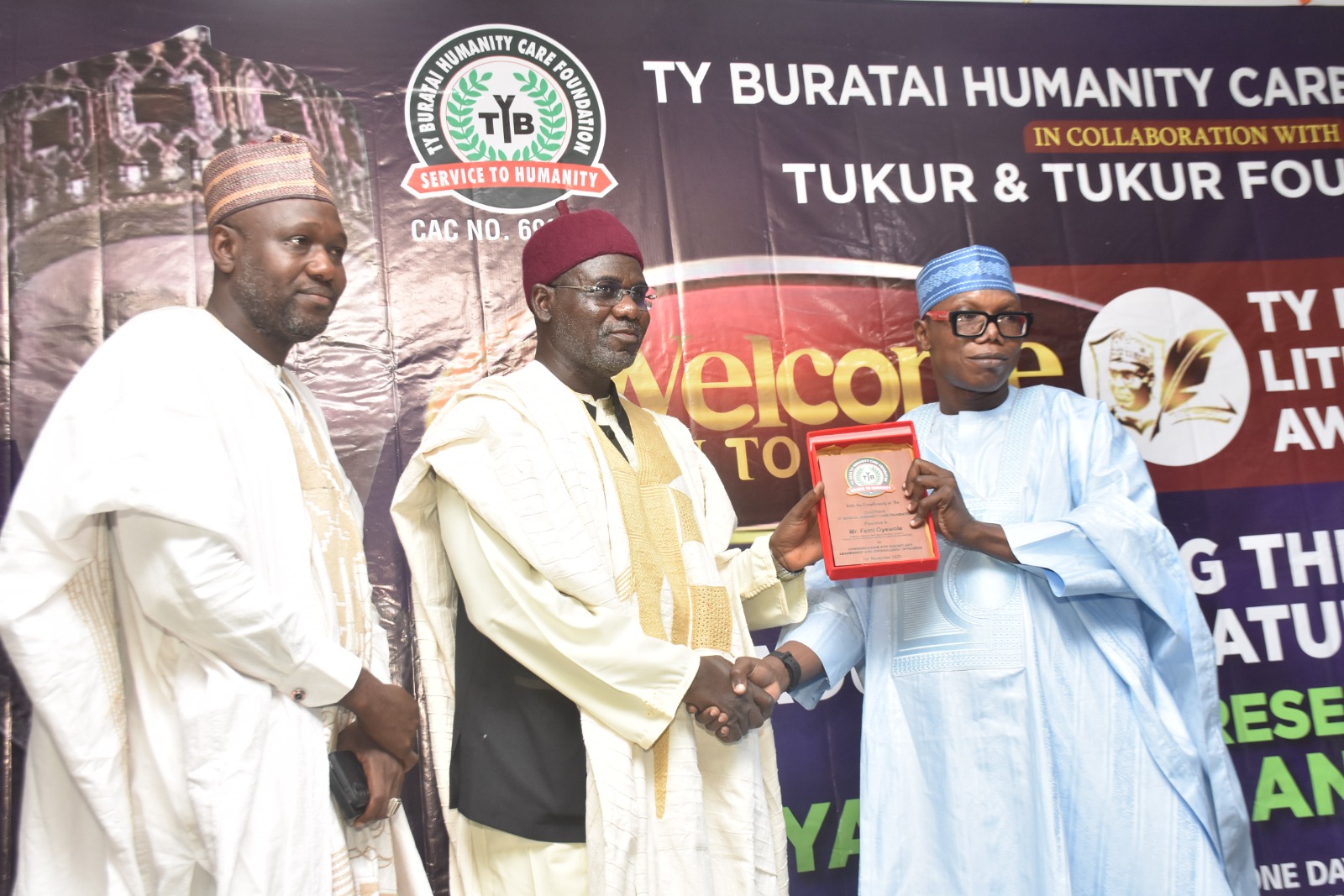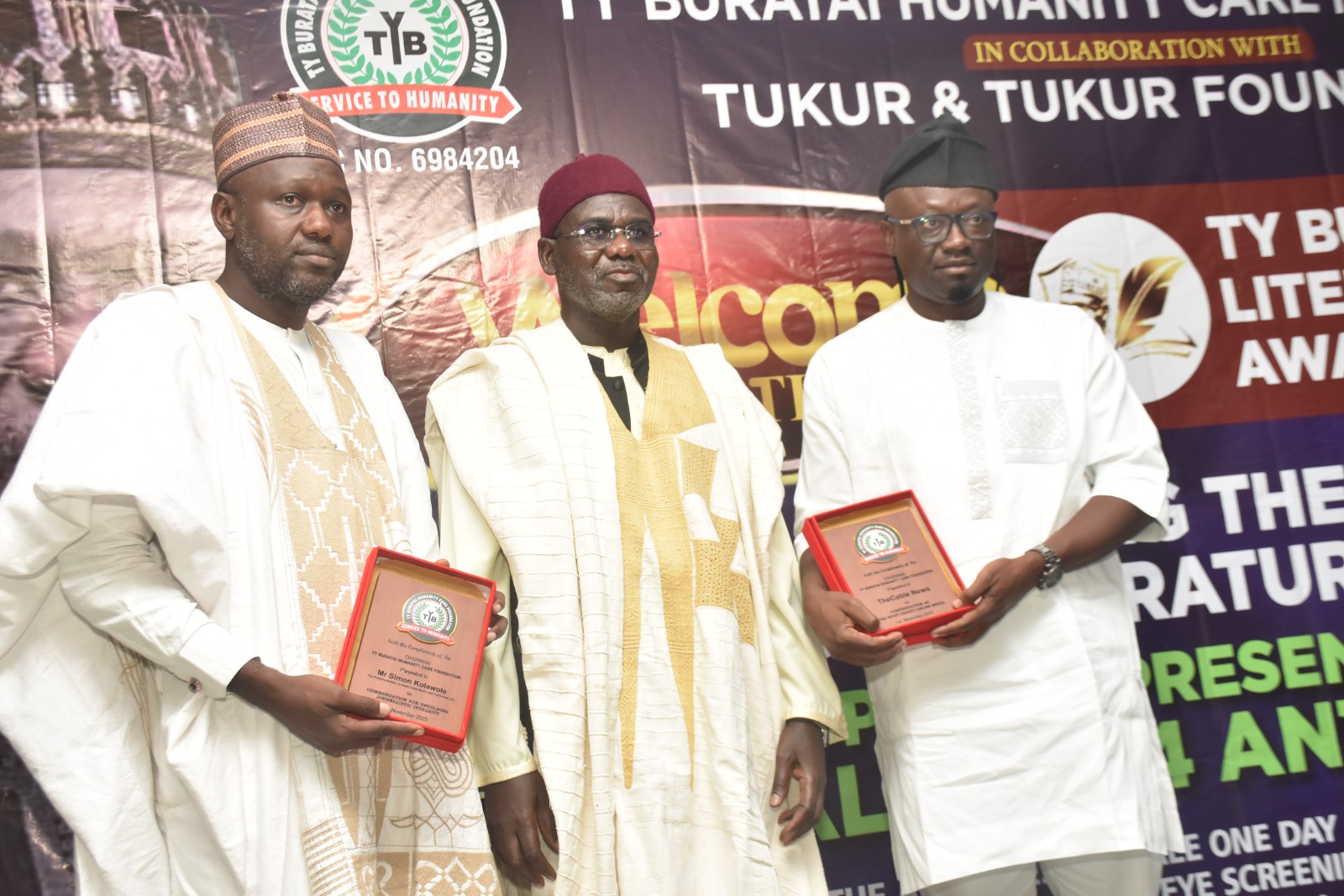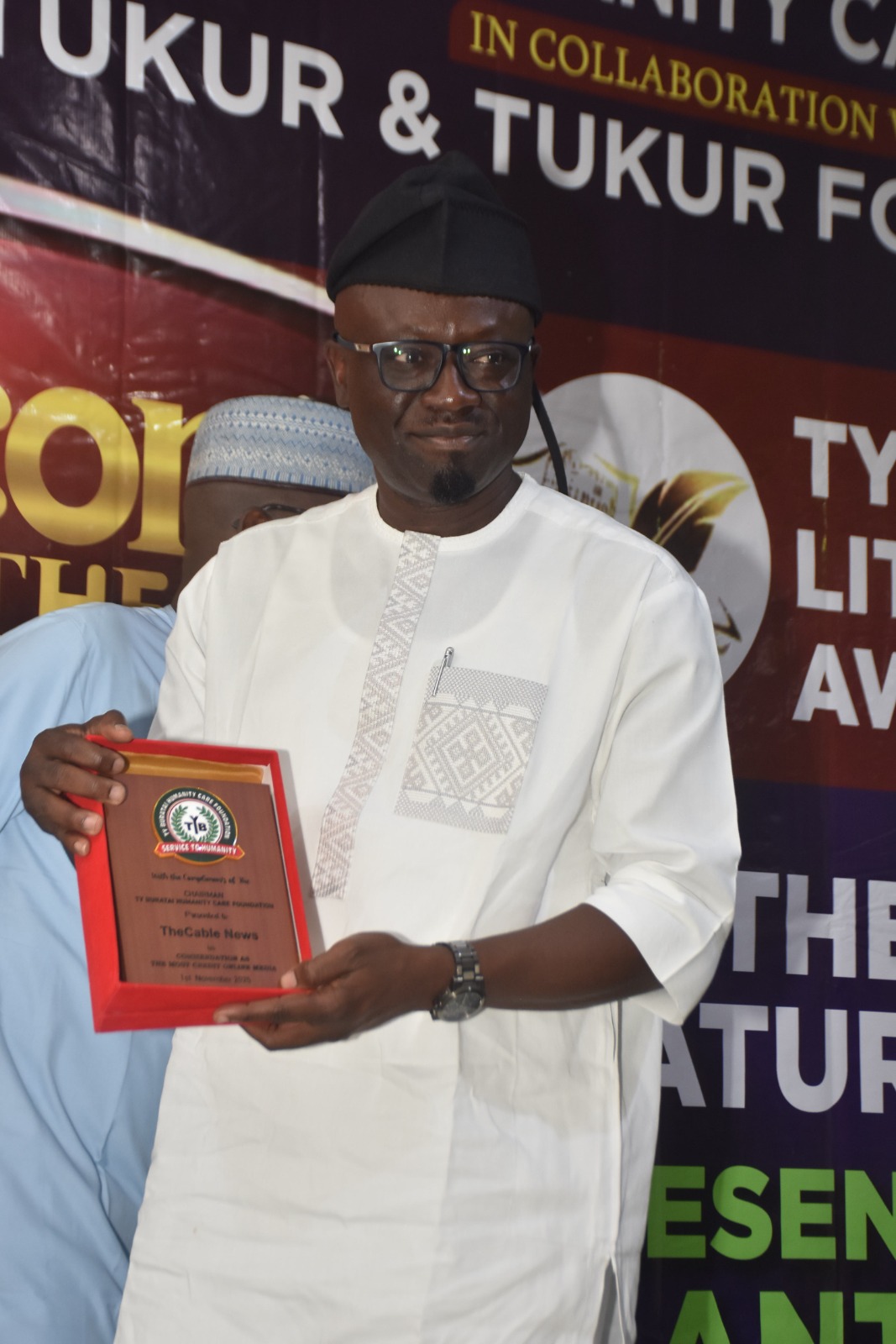brands/telecom
Nestlé’s Nutritionist, Cissoko, Provides Insights On Harmonious Transition To A Balanced Diet After Ramadan

Nestlé’s Nutritionist, Cissoko, Provides Insights On Harmonious Transition To A Balanced Diet After Ramadan
The sacred month of Ramadan came to an end about 24 hours ago with Eid al-Fitr celebrations which mark the end of the fasting period.
This technically raises the issue of how to smoothly return to daily eating habits after the sunrise to sunset, no water or food long hours.
Then, breaking the fast at sunset, followed by one to two more meals before dawn. Meals during Ramadan are often more abundant and richer than usual, consumed at unusual hours of the night.
As the sacred month of Ramadan comes to an end with Eid al-Fitr, the celebration marking the end of the fasting period, many people wonder how to smoothly return to their daily eating habits. How can one make this transition without any hiccups and adopt behaviors that promote a healthy diet while avoiding post-Ramadan nutritional pitfalls?
To guide you in this process, Dr. Cissoko, Nutritionist at Nestlé, provides some insights for a harmonious transition to a balanced diet after Ramadan.
Readjusting Your Digestive System without Rushing:
To avoid potential stomach discomfort, bloating, constipation, or diarrhea, it is recommended to opt for easily digestible foods. Fish is preferable to meat as it is lighter and easier to digest. Cooked vegetables with low fat content are also gentler on the digestive system compared to raw vegetables. Whole or semi-whole grains are rich in fiber and promote a healthy intestinal transit. Fully ripe fruits are also easier to digest than unripe ones.
Water, on the other hand, is your best ally for a smooth transition before returning to a normal diet. In addition to maintaining the body’s water balance, it plays an essential role in digestion by facilitating the process and helping eliminate toxins. Water remains the best beverage.
Lastly, prioritize small portions and take the time to chew your food well, which allows for better digestion and optimal nutrient absorption.
Opt for Gradual Changes, the Key to Dietary Rebalancing:
For a smooth transition after Ramadan, it is recommended to adopt a measured and thoughtful approach, whether in introducing different food groups or in the frequency and intensity of physical activities. Take the time to gradually introduce foods in a balanced manner, ensuring to include all necessary food groups for a healthy diet. It is important to note that physical exercise is of paramount importance in the context of a balanced diet. Light activities such as walking are particularly recommended at the beginning. They stimulate the body without subjecting it to excessive efforts. Over time, you can gradually increase the intensity of these physical activities according to your abilities. This gradual approach is the key to regaining dietary balance after Ramadan.
Avoiding Post-Ramadan Nutritional Pitfalls:
It is important to remain aware of potential nutritional pitfalls that could hinder a balanced diet.
Excessive Sugar Intake: After a period of fasting, it can be tempting to indulge in excessive sweets and desserts. It is essential to limit the consumption of added sugar and prioritize natural sources of sugar, such as fruits.
Excessive Portions: After fasting, it is common to want to compensate by eating larger portions. However, this can lead to overeating and calorie imbalance. It is important to maintain moderate portions and eat slowly to better feel satiety.
Ensuring a Good Variety of Foods: After Ramadan, it is essential to maintain a balanced diet by ensuring the inclusion of a variety of foods to guarantee an adequate intake of essential nutrients. Make sure to include a wide range of fruits, vegetables, lean proteins, whole grains, and sources of healthy fats in your meals.
Maintaining Proper Hydration: After a period of fasting, it is important to ensure adequate hydration. Make sure to drink enough water throughout the day to maintain good hydration. It is recommended to consume at least 2 liters of water per day.
Being Mindful of Snacking: Prioritizing structured meals over snacking helps maintain a healthy weight and avoid unnecessary calorie intake.
Listening to Your Body: Relearning to listen to hunger and satiety signals is a valuable skill to adjust your diet to your true needs.
Planning to Avoid Slip-Ups: Anticipating and preparing meals is an effective strategy to stick to a balanced diet and avoid impulsive food choices.
The period following Ramadan is an opportune time to establish or reinforce healthy and sustainable eating habits. By taking conscious steps, each individual can make the most of this transition to nourish their body and mind.
At Nestlé, we encourage and support this journey by offering a variety of products and tips to accompany you in your quest for a balanced diet.
brands/telecom
Femi Oyewale, Simon Kolawole Honoured with TY Buratai Humanity Care Foundation Award of Excellence in Journalism

Femi Oyewale, Simon Kolawole Honoured with TY Buratai Humanity Care Foundation Award of Excellence in Journalism
Gora, Nasarawa State, 1 November 2025 – In a ceremony celebrating literary and journalistic excellence, Mr. Femi Oyewale, Publisher and Editor-in-Chief of Sahara Weekly and President of the National Association of Social and Resourceful Editors (NAOSRE), was conferred with the Award of Excellence in Journalism by the TY Buratai Humanity Care Foundation.
The award was presented during the TY Buratai Literary Initiative Award Ceremony, which also featured the Young 20 Adult Literature Prize (YALP) 2024 Anthology Public Presentation at the newly commissioned Lt Gen OA Ihejirika (Rtd) Hall within the Tukur Buratai Research Center, Gora, Nasarawa State. The hall was officially declared open by Lt Gen OA Ihejirika (Rtd) himself, who also served as the Chairman of the occasion. Unable to attend in person due to international commitments, Mr. Oyewale was ably represented by Dr. Mohammed Sani Abubakar.
Celebrating a Legacy of Integrity and Humanitarianism
The award citation recognized Mr. Oyewale for his exemplary contributions to journalism, transformative leadership, and profound humanitarian service, perfectly aligning with the foundation’s mission: “helping the poor, improving lives.”
A distinguished publisher and visionary leader, Mr. Oyewale’s career trajectory exemplifies dedication and professionalism. Trained under the mentorship of Concord Newspapers, he rose to lead Sahara Weekly, NAOSRE, and the National Association of Online Security Reporters with a steadfast commitment to ethical, balanced, and impactful reporting.
Through the NASRE Media Foundation, he has pioneered initiatives providing financial aid, medical support, and educational scholarships to families of deceased and ailing journalists, creating a safety net for those who dedicate their lives to informing the nation.
General Buratai’s Remarks on the Occasion
In his keynote address, General Tukur Buratai (Rtd) lauded Mr. Oyewale as a “shining example of integrity and social consciousness in Nigerian journalism,” stating:
“In a time when the press faces numerous challenges, Femi Oyewale has consistently demonstrated that leadership in journalism is not only about reporting the truth, but also about uplifting those who risk everything to keep the public informed. His humanitarian work mirrors the core values of our foundation – compassion, service, and empowerment.”
General Buratai further encouraged media leaders to emulate Mr. Oyewale’s commitment, adding:
“We honour not just a journalist, but a visionary whose work strengthens the pillars of democracy and serves as a beacon of hope for all Nigerians.”
Media Houses and Recognition
The award was jointly acknowledged by two leading media institutions: The Cable Newspaper, led by Publisher Simon Kolawole, and Sahara Weekly, under Mr. Oyewale’s stewardship. This dual recognition highlighted the recipient’s leadership and collaborative spirit within Nigeria’s media landscape.
The award citation read:
“For his unwavering dedication to journalistic excellence, his visionary leadership that unites and empowers media professionals, and his profound humanitarian impact that touches countless lives, we celebrate him today. He is not just a master of his craft, but a beacon of hope and a true champion for humanity.”
A Personal Letter of Commendation
Prior to the ceremony, Mr. Oyewale received a formal letter of commendation from the TY Buratai Humanity Care Foundation, praising his leadership of NAOSRE and Sahara Weekly as a model for ethical journalism:
“Your distinguished career, marked by integrity and a steadfast commitment to the truth, is vividly reflected in your leadership of Sahara Weekly and Sahara TV. Your continued guidance will be defined by the same objectivity, resourcefulness, and unwavering dedication to the public interest that has characterized your work.”
The award, presented at the Tukur Buratai Research Centre, marks another milestone in Mr. Oyewale’s ongoing mission to champion ethical journalism and humanitarian service. His recognition today underscores a career dedicated not only to reporting the truth but also to uplifting and supporting those who serve the public through media.
About the TY Buratai Humanity Care Foundation
The foundation is committed to humanitarian service, social development, and recognition of excellence, particularly in fields that impact society, including media, education, and literature.
brands/telecom
Despite Hardship, Glo Continues To Make Life Easier For Nigerians By Osho Oluwatosin

Despite Hardship, Glo Continues To Make Life Easier For Nigerians
By Osho Oluwatosin
Due to the economic hardship that has affected Nigeria as a country, several sectors, including telecommunications, have had to make necessary reforms and adjustments, especially in terms of tariffs, to reflect the reality of the Nigerian economic situation.
Some players in the sector, like Karl Toriola of MTN, had advocated for a 100% increase in tariffs due to the operational costs his company is enduring as a result of the economic hardship. Others also called for a similar increase, and as expected, the Nigerian Communications Commission (NCC) approved a 50% increase in tariffs in February.
Although several Nigerians complained bitterly due to the fact that several essential commodities are already expensive, in all fairness, an increment was necessary because telecommunication companies also pay high costs for commodities like diesel. If Nigerians continue paying the lower tariffs while operational costs keep increasing, some companies may begin to shut down.
However, if there is any telecommunications giant that has considered the feelings of Nigerians regarding the directives from NCC to increase tariffs, it is Globacom, the only indigenous telecommunications company owned by billionaire Mike Adenuga.
While the likes of MTN implemented a 200% increase and later apologized, Globacom, in its magnanimity and unwavering support for Nigerians, introduced some promos to ease the pain of Nigerians, especially the youth population that makes use of data.
One of the most hardship-alleviating initiatives by the company is the Glo eSIM 5GB free data, which was even extended to customers of other networks. According to the company, customers on other networks can easily use Glo eSIM as an additional SIM card and enjoy 5GB free of charge.
The outlet comes with an introductory free 5GB of data when the customer buys a data plan of N1,500 or more.
Customers already on other networks can now join the Glo network with eSIM as an additional SIM. Existing Glo customers can also enjoy this “SIM-less” freedom.
With the eSIM, customers no longer have to worry about space for a physical SIM on their phones. The eSIM is a software-based digital chip built directly into smartphones or wearable devices, thus eliminating the need for a physical SIM card for customers.
“Globacom is welcoming new customers on its network with the introduction of the eSIM. The eSIM, activated in any Gloworld shop or dealer outlet, comes with an introductory free 5GB of data when the customer buys a data plan of N1,500 or more.
“Customers already on other networks can now join the Glo network with eSIM as an additional SIM. Existing Glo customers can also enjoy this ‘SIM-less’ freedom.
“With the eSIM, customers no longer have to worry about space for a physical SIM on their phones. The eSIM is a software-based digital chip built directly into smartphones or wearable devices, thus eliminating the need for a physical SIM card for customers.”
Likewise, Glo recently announced a 15% bonus on every eTop-up for subscribers; this simply means that for every airtime recharge, customers get 15% added to whatever they bought.
In a press statement issued in Lagos, Globacom said, “In line with our commitment to delivering exceptional value to customers, we have introduced this bonus airtime promotion to help our customers get the most out of their mobile experience. Whether the airtime is used for calls, data, or messaging, this extra boost ensures that customers stay connected with their loved ones and colleagues without interruption. It was introduced to give our esteemed customers unprecedented value for money and a delightful calling experience on the Glo network.”
According to Glo, “The validity of the airtime is 7 days and cannot be rolled over; once the bonus airtime is not used within the validity period, it expires, and the customer forfeits the bonus.”
Furthermore, Glo partnered with establishments like Samsung to ensure Nigerians remain connected to the internet with unprecedented free data. Just recently, the telecommunications giant teamed up with Samsung, the world’s leading manufacturer of electronic devices, to bring a new offer to Glo subscribers. This tantalizing deal allows Glo customers to pre-order the highly sought-after Samsung Galaxy S25 smartphone and enjoy unique benefits.
Globacom is also delighting customers who purchase any model from the Galaxy S25 series with 18GB of bonus data for 6 months under smartphone festival data plans, while they can also secure their pre-order at any Gloworld shop with an advance payment of ₦500,000. Pre-ordered phones will be delivered to customers from February 19 onwards.
Meanwhile, Glo has been engaging in several promos back-to-back for the benefit of Nigerians. Through the Glo Festival of Joy promo, more than 50 Nigerians have won vehicles as luxurious as the Toyota Prado and other home appliances for using the Glo network and recharging regularly.
What about the Glo Lucky Number game? At different times, subscribers have been rewarded with cash prizes ranging from N100,000 to N1,000,000.
All of these and more indicate one thing: Glo is the only indigenous company that cares about the feelings of Nigerians, and these promos are major means through which the populace can be eased from the nationwide economic hardship.
Huge kudos to Globacom.
– Osho Oluwatosin is a journalist and publisher of www.trixxng.com
Bank
Waste for Gas – GTCO Plc Launches Initiative to Improve Quality of Life for Households and Empower Women

Waste for Gas – GTCO Plc Launches Initiative to Improve Quality of Life for Households and Empower Women
Guaranty Trust Holding Company Plc (GTCO), a leading financial services institution renowned for its innovative approach to corporate social responsibility (CSR) and stakeholder engagement, today announced the launch of its “Waste for Gas” project to improve quality of life for households and empower women in underserved communities. This transformative initiative aims to distribute 3,000 3kg gas cylinders with burners to low-income households in Obafemi Owode Local Government, Mowe, Ogun State.
The Waste for Gas project underscores GTCO’s unwavering commitment to improving outcomes for people and communities. By providing households with gas-powered cooking, the initiative simplifies daily routines, freeing up time for essential activities that support financial resilience. The initiative also introduces a structured “waste for gas” exchange programme that promotes responsible waste management, fostering a culture of sustainability.
The project will unfold in two key phases, ensuring that it reaches those most in need. In the first phase, teams from GTCO, in collaboration with local government representatives, will conduct door-to-door visits across 12 wards in Obafemi Owode Local Government from Monday to Friday, February 18th – 21st, 2025.
These visits will help identify beneficiaries who currently rely on firewood and charcoal for cooking. Participating households will collect and return plastic waste in exchange for gas cylinders and burners. In the second phase, scheduled for Saturday and Sunday, February 22nd and 23rd, 2025, efforts will be shifted to monitoring and increasing adoption of the new cooking method among the beneficiaries.
Speaking on the initiative, Mr. Segun Agbaje, Group Chief Executive Officer of GTCO Plc, stated: “At GTCO, we are committed to driving progress, not just through innovative financial solutions but by creating real impact in the communities where we operate. Waste for Gas is about making life easier for families, giving them more time for what truly matters—whether it’s education, meaningful work, or personal development. Beyond this initiative, our goal is to continually evolve sustainable platforms that empower people, strengthen communities, and contribute to socioeconomic progress.”
As GTCO continues to expand its CSR footprint, the Waste for Gas project serves as a blueprint for future interventions that drive meaningful, long-lasting impact in underserved communities.
About GTCO Plc
Guaranty Trust Holding Company Plc (GTCO) is a leading financial services institution headquartered in Lagos, Nigeria, with operations across 10 countries in Africa and the United Kingdom. GTCO Plc transitioned from a pure-play commercial bank—licensed since 1990—to a fully-fledged financial services company in April 2021 under a non-operating financial holding company structure, with shares listed on both the Nigerian Exchange (NGX) and the London Stock Exchange (LSE). The operating entities within GTCO’s robust financial ecosystem include Guaranty Trust Bank Limited (GTBank), Guaranty Trust Fund Managers Limited (GTFM), Guaranty Trust Pension Managers Limited (GTPM), and HabariPay Limited (Habari).
As a “Proudly African and Truly International” Institution, GTCO has been at the forefront of enriching lives and promoting enterprise across the African continent through its transformative platforms and differentiated offerings.
-

 celebrity radar - gossips6 months ago
celebrity radar - gossips6 months agoWhy Babangida’s Hilltop Home Became Nigeria’s Political “Mecca”
-

 society6 months ago
society6 months agoPower is a Loan, Not a Possession: The Sacred Duty of Planting People
-

 society5 months ago
society5 months agoReligion: Africa’s Oldest Weapon of Enslavement and the Forgotten Truth
-

 news6 months ago
news6 months agoTHE APPOINTMENT OF WASIU AYINDE BY THE FEDERAL GOVERNMENT AS AN AMBASSADOR SOUNDS EMBARRASSING















